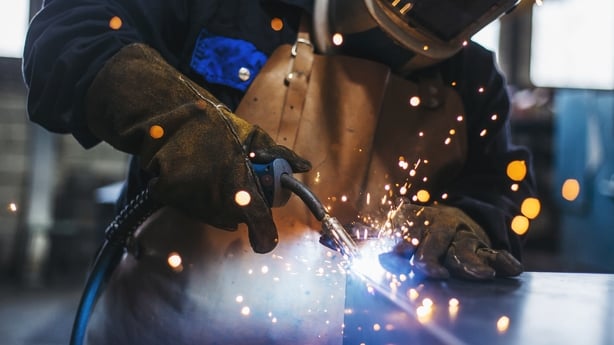The European Union will tighten steel import quotas to reduce inflows by a further 15% from April, a senior EU official has said, in a move aimed at preventing cheap steel flooding the European market after Washington imposed new tariffs.
European steel producers already battling high energy prices and competition from Asia and elsewhere warn that the EU risks becoming a dumping ground for cheap steel diverted from the US market, which could kill off Europe's plants.
"During a period when nobody is respecting WTO (World Trade Organization) rules and everyone refers to national security... the EU can't be the only continent that lets its industry fall apart," European Commission Executive Vice-President Stéphane Séjourné said.
Given the US market was now making less commercial sense with a 25% tariff imposed by President Donald Trump's administration in place, Mr Séjourné forecast that producers from Canada, India and China would look to sell increasing volumes in Europe.
The Commission will propose a raft of trade-related measures to boost its ailing metals industry, part of a new European Steel and Metals Action Plan. A draft of the plan seen by Reuters earlier this week showed the EU was studying import curbs.
Mr Séjourné, who is responsible for defining the bloc's industrial strategy, said a first measure would be to reduce import quotas, known as safeguards, for multiple steel grades from 1 April, which would cut inflows by approximately 15%.
Volumes imported within the quotas reflect established trade flows and are not subject to tariffs. Any steel imports outside the quota will be hit by a 25% tariff. Since July 2019, the quota volumes have increased by over 25% as the bloc complies with WTO rules.
In 2024, the EU imported about 60 million metric tons of steel, out of which 30 million tons were within the tariff-free quota.
The Commission will also set out new measures in the third quarter to replace the reinforced safeguards, which under WTO rules cannot be extended beyond 30 June, 2026.

Mr Séjourné said the new mechanism will be much stricter after appeals from the industry. The details are still to be determined.
"We also have the challenge to anticipate future tensions, wars and pandemics and we saw what happened in the past with Russian gas ... Let's avoid that steel tomorrow becomes the gas of yesterday," Mr Séjourné said.
He said the EU did not want to depend on imports for steel, which will be crucial in the EU's rebuilding of its military industrial complex after the Ukraine war.
To further boost existing trade defence measures, public procurement rules are expected to be revised in 2026 to favour European steel. The Commission will also introduce a "melted and poured" rule, according to the draft Steel and Metals Action Plan. The rule would stop importers from changing the metal's origin "by performing minimal transformation."
Among non-trade measures, a pilot programme with the European Investment Bank to guarantee long-term power contracts will prioritise steel and aluminium producers. The details will be announced in the second quarter of 2025.
"We want to keep our steel in Europe and be able to recycle in Europe," Mr Séjourné said. "It's a strategic issue. There is no defence industry without steel, there is no automobile without steel and we want to keep our industries."
Europe doesn't want 'a tariff war' - Taoiseach
Taoiseach Micheál Martin said that "there has to be a comprehensive approach" to any tariffs announced by the US on the EU.
"The EU will be allowing a bit of time after 2 April before it responds," he added.
The Government will be "pushing for" the EU to "adopt a strategic approach".
"We do not want a tariff war in Europe," Mr Martin said.
Ireland wants to 'do more business' with US
The Tánaiste and Minister for Trade has said that tariffs are "bad news" for consumers in Europe, Ireland and the United States.
Speaking as he arrived for a Cabinet meeting, Simon Harris said he would begin a series of calls to his counterparts across the European Union today and on Friday will convene and chair the Government's trade forum.
He said it is the preference of the US to announced on 2 April the measures they intend to take "and only after that point to begin to engage intensively on a way forward. I actually think it would be a much better use of time use of time to start that engagement now."
Mr Harris returned from the US this morning following a series of St Patrick's Day engagements.
He said: "Ireland and the European Union wants to do business with the United States. In fact, we want to do more business with the United States."
Mr Harris said Ireland would continue to diversify trade but the US was a major market.
Asked if items like bourbon should be excluded from tariffs, he said: "We need to be very careful as a country and as countries, highlighting one item over another, because even if you make progress on one item, well, then the focus just moves to another."
The Taoiseach said the Central Bank's prediction of reduced economic growth, reflects "the genuine concern out there in relation to an uncertain economic environment because of the threat of tariffs and because of uncertainty in American economic policy."
Micheál Martin said this "can only be resolved by dialog, and that may very well transpire, and there are contacts between the US and the European Union."







